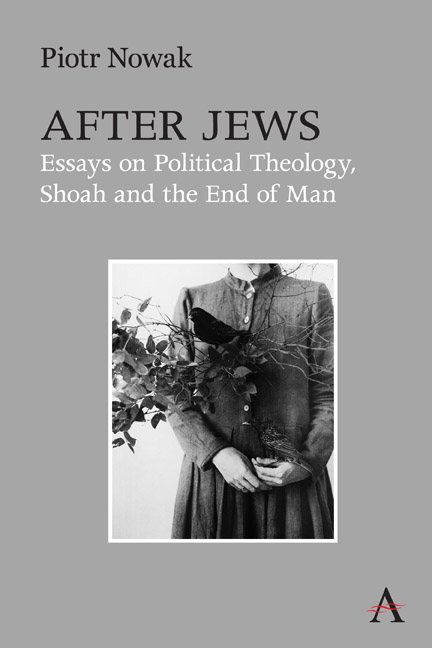Book contents
- Frontmatter
- Contents
- Preface
- Chapter 1 The Chosen Ones
- Chapter 2 The Secret of the Scapegoat
- Chapter 3 Making a Jew into a Christian
- Chapter 4 There Should Be Time No Longer
- Chapter 5 To Look Upon His Face and Yet Not Die
- Chapter 6 Ex oriente lux?
- Chapter 7 Pilloried by Necessity
- Chapter 8 German Rubble
- Chapter 9 Long Live!
- Chapter 10 The Living against the Dead
- Chapter 11 The Child of War
- Chapter 12 Plenty Coups and the End of the World
- Chapter 13 They Refugees
- Chapter 14 The Remainder of Christianity
- Bibliography
- Index of Persons
Chapter 6 - Ex oriente lux?
Published online by Cambridge University Press: 13 May 2022
- Frontmatter
- Contents
- Preface
- Chapter 1 The Chosen Ones
- Chapter 2 The Secret of the Scapegoat
- Chapter 3 Making a Jew into a Christian
- Chapter 4 There Should Be Time No Longer
- Chapter 5 To Look Upon His Face and Yet Not Die
- Chapter 6 Ex oriente lux?
- Chapter 7 Pilloried by Necessity
- Chapter 8 German Rubble
- Chapter 9 Long Live!
- Chapter 10 The Living against the Dead
- Chapter 11 The Child of War
- Chapter 12 Plenty Coups and the End of the World
- Chapter 13 They Refugees
- Chapter 14 The Remainder of Christianity
- Bibliography
- Index of Persons
Summary
When a Jew—asked by a friend how distant is the country to which they are heading—offers their notorious answer, “How far from what?,” they do not, thereby, underscore a quality of all places and, therefore, all paths (which would entail a meaninglessness of any journey whatsoever), but express their desperate pain that it is impossible to arrive at that unique place the reaching of which appears necessary.
Why don't the Jews from the East see the advantages of their position and prefer the others’ to their own? Why do they choose to wander and abandon places that are also their places? After all, Jewish bones had for centuries been buried in the Borderlands of the former Polish Commonwealth. What force propels them to where no one awaits the Jews? And, lastly, why doesn't the Jew “see the goodness of the Slav people, whose coarseness remains more decent than the housetrained animality of the Western European, his secretive perversions, his cringing before the law, with his well-bred hat in his apprehensive hand”? Some Jews abandoned, as they would have it, a land of eternal oppression where, alternately, they were under threat of war or programs. Hence, far, far away from here, everywhere, but not here! Still others kept believing that the Jews’ only motherland is Palestine, because that is what the Bible says and the Zionists teach, but also because, outside of that land, the Jews would not be at home in any other place on Earth. A great number of Jewish émigrés were also drawn to an attractiveness of industrial civilization developing at an ever higher pace, felt particularly west of the Lusatian Neisse and in the Soviet Union. The mere reason Eastern Jews arrived in a new place as new blood, with fresh vitality, entrusted them with the task “to break up the deadly, antiseptic boredom of its civilisation,” to shake it up from within, to revolutionize.
Considerations of that order fill the opening pages of Joseph Roth's book about the world-wandering Jews, as he ponders the question whence all their buzz, what is the source of their energy and faith in the fact that life must doubtlessly be better somewhere else.
- Type
- Chapter
- Information
- After JewsEssays on Political Theology, Shoah and the End of Man, pp. 81 - 98Publisher: Anthem PressPrint publication year: 2022



